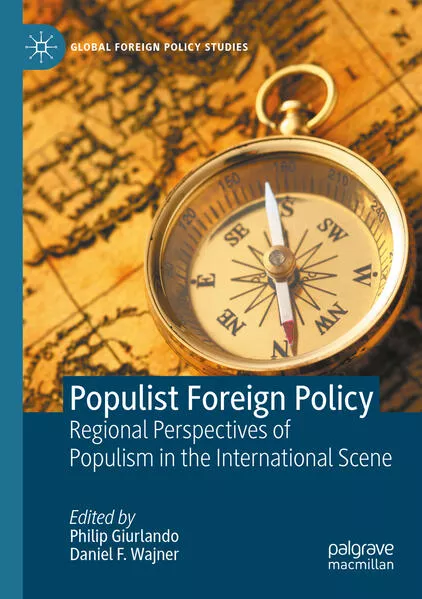
- Publikationen ca: 3
- Fragen & Antworten
Philip Giurlando
Philip Giurlando is Assistant Professor of International politics at Xi'an Jiaotong-Liverpool University. Populist foreign policies are one of his core areas of research, and his most recent publication on the subject is “Populist Foreign Policy: The Case of Italy” in the Canadian Journal of Foreign Policy.
Daniel F. Wajner is Lecturer (Assistant Professor) in the Department of International Relations and the European Forum at the Hebrew University of Jerusalem. He has published academic articles on populist foreign policies, with a particular focus on Latin America, Europe and the Middle East, in British Journal of Politics and International Relations, Comparative Political Theory, Journal of International Relations and Development, and Latin American Research Review.
Populist Foreign Policy
This book explores the global phenomenon of populism in relation to states' foreign policy, addressing two key questions: How do populists mold their foreign policies? What are the domestic and external factors that enable and constrain it? To this end, the book brings together a diverse group of scholars who have already researched on populist foreign policies (PFP) in specific countries to contribute shared chapters that examine their drivers, patterns, and effects according to distinctive regions: North America, Western Europe, Southern Europe, Central-Eastern Europe, Latin America, South-East Asia, the Middle East, Oceania, and Africa.
Populist Foreign Policy
This book explores the global phenomenon of populism in relation to states' foreign policy, addressing two key questions: How do populists mold their foreign policies? What are the domestic and external factors that enable and constrain it? To this end, the book brings together a diverse group of scholars who have already researched on populist foreign policies (PFP) in specific countries to contribute shared chapters that examine their drivers, patterns, and effects according to distinctive regions: North America, Western Europe, Southern Europe, Central-Eastern Europe, Latin America, South-East Asia, the Middle East, Oceania, and Africa.
Populist Foreign Policy
This book explores the global phenomenon of populism in relation to states' foreign policy, addressing two key questions: How do populists mold their foreign policies? What are the domestic and external factors that enable and constrain it? To this end, the book brings together a diverse group of scholars who have already researched on populist foreign policies (PFP) in specific countries to contribute shared chapters that examine their drivers, patterns, and effects according to distinctive regions: North America, Western Europe, Southern Europe, Central-Eastern Europe, Latin America, South-East Asia, the Middle East, Oceania, and Africa.


